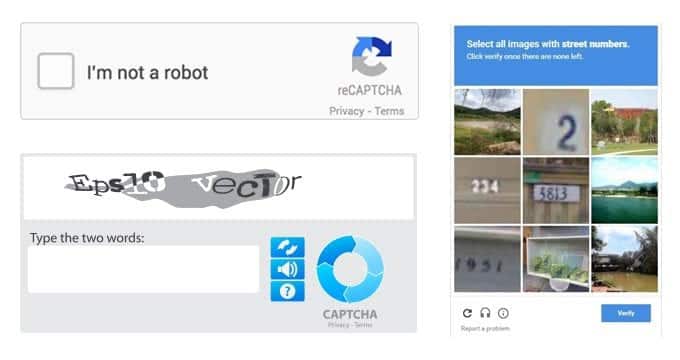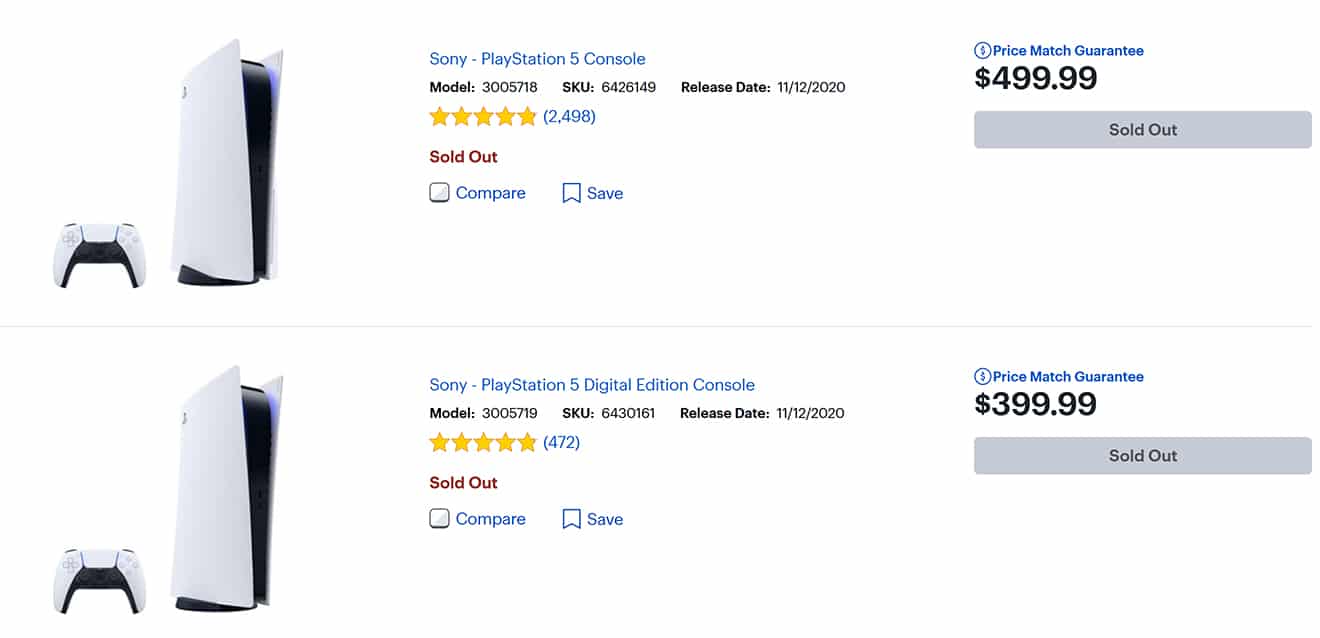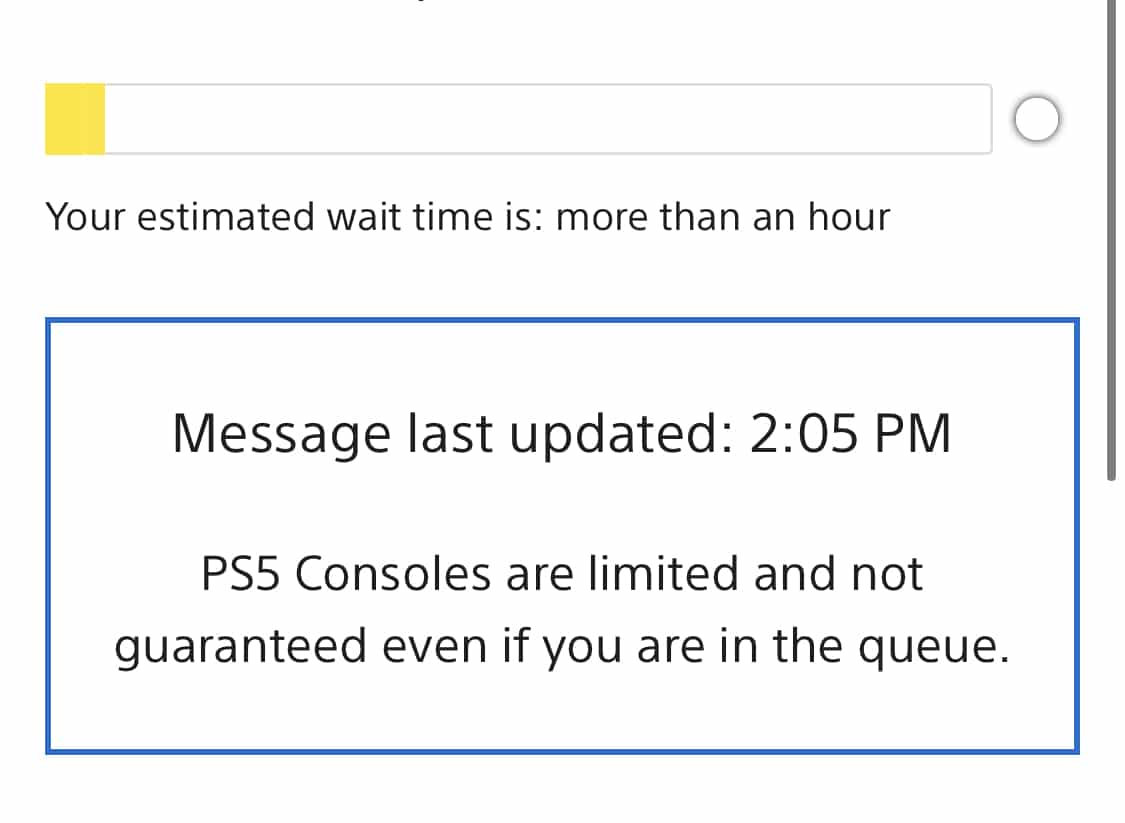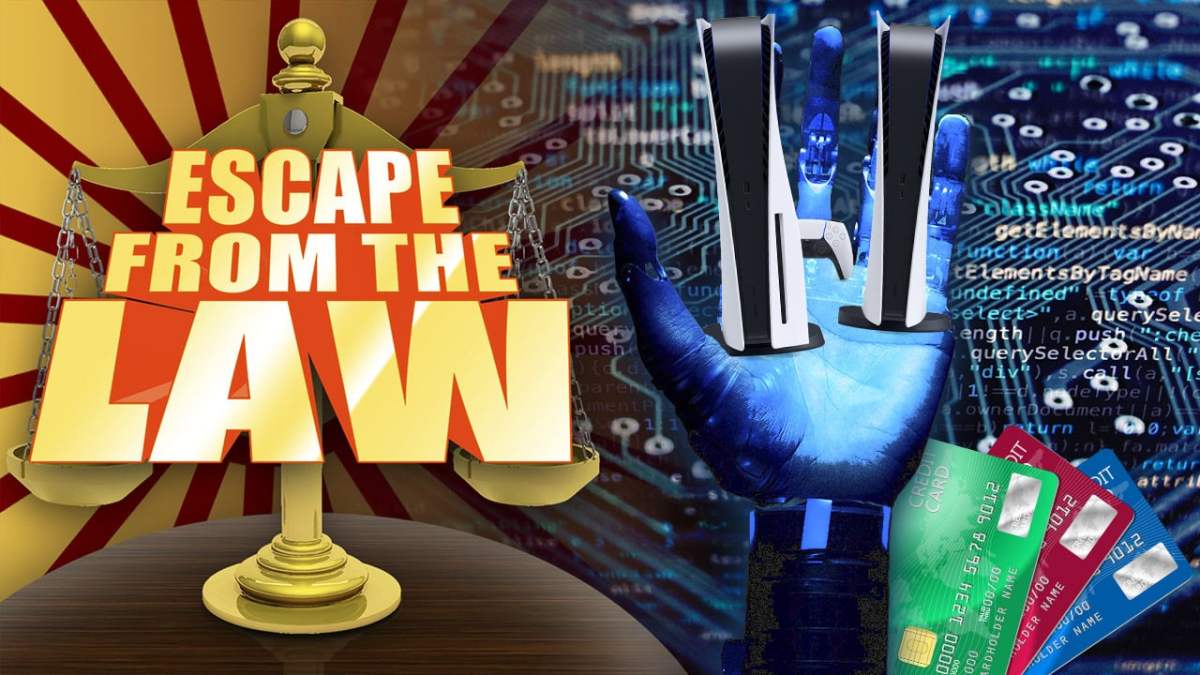In my most recent column, I discussed ongoing frustrations with PlayStation 5 scalpers, explained why scalping is legal, and reviewed a few options — business, legal, and strategic — that can be used to reduce or eliminate scalping. What I didn’t realize at the time — and what has become obvious in the intervening weeks — is that the scalper problem is really a bot problem. We’re not dealing with human scalpers who wait for a restock and attempt to go through a manual online checkout process with everyone else. Instead, we’re dealing with computer programs that monitor websites 24/7 and use automated scripts to purchase units as soon as they become available.
These bots don’t need to manually reload a webpage, don’t need to enter any billing or shipping information, and don’t need to click to confirm their order. It should thus come as no surprise that bots can complete multiple purchases before consumers even know that there has been a restock. Indeed, reports suggest that bot-assisted scalpers have recently obtained and resold thousands of PS5 units.
That brings us to the question of the hour — what can be done about bot scalpers? As it turns out, a lot, as there is a wide array of both legal and technical solutions that can be used to eradicate the scourge of bot scalpers.

Technical Solutions to Bots
We can start with the technical solutions, since those are the most straightforward. There are a handful of easily implemented technical solutions that retailers could use to prevent bot sales. Among other things, retailers can install CAPTCHAs so that buyers can prove they are human, can impose a one-unit-per-IP address limit on purchases, and can use a queue to exert more control over who can enter their online storefront.
My personal favorite tactic, however, would be for retailers to use dynamic forms that make it harder for bots to correctly navigate the website. Bots may be fast, but they’re also dumb — they do exactly as they are instructed and don’t (yet) incorporate AI. So if a bot is instructed to use an “add to cart” button located in a particular part of the webpage, and that button is moved or renamed, the bot will fail. Dynamic forms can enable that kind of movement or renaming.
The technical solutions come with two significant caveats. First, each of the solutions depends on retailers caring enough to invest time and resources to fight the bots. Retailers control their websites, so any change has to start with them. Second, any technical solution would only be temporary. For each measure used to prevent bots, there is a countermeasure that can be used to compensate.
For example, computer vision algorithms can be used to interact with CAPTCHAs, scalpers can have bots spoof IP addresses, and dynamic forms can (with some difficulty) be overcome with smart coding, cleverness, and ingenuity. This means that preventing scalper bots isn’t something that can be solved with a single change — there are some easy things retailers can do to make things much harder for scalpers, but any permanent solution requires persistent attention.

Legal Solutions to Bots
Bot Contracts Are Legal
Any discussion of legal solutions has to start with the fact that automated contracts — meaning contracts executed by computers — are perfectly legal and completely enforceable. To state an obvious example, every eBay auction is a fully automated purchase. A human buyer may enter a bid, but a computer is responsible for increasing the bid and for finalizing the transaction. To provide another example, the vast majority of trades on the stock market are performed by computers and are run in accordance with complicated trading algorithms, such that brokers aren’t even aware of the trades that are being performed on their behalf.
When it comes to scalpers, the legitimacy of automated contracts is significant because it means there is nothing intrinsically illegal with the bot purchases. To the contrary, many online storefronts are structured to facilitate and encourage bot purchases, as they generally result in increased market liquidity, higher sales, and happier customers. Indeed, one of the touted features of Amazon’s Alexa is that it can be used to place automatic, recurring orders for online goods. It doesn’t require a stretch of the imagination to see how, in the future, digital assistants could themselves be used as scalper bots. (“Alexa, please purchase 10 PlayStation 5s as soon as they become available.”)
Why Bot-Assisted Scalpers May Be Subject to Criminal and Civil Liability
So if there’s nothing intrinsically illegal with the use of scalper bots, does that mean the scalpers are free and clear? Not quite. There is a plausible argument that bot-assisted scalpers are liable for breach of contract, fraud, and wire fraud.
The breach of contract takes place for violating the terms and conditions associated with retailer websites. Regardless of whether retailers employ technical barriers to bots, nearly every website imposes some limitations on how their website is used. For example, Best Buy’s terms and conditions only allow people to access the Best Buy website for “personal, noncommercial use” and prohibit, among other things, “using any Best Buy Property for unintended purposes or trying to change the behavior of any Best Buy Property” and “attempting to probe, scan or test the vulnerability of a system or network or breach security or authentication measures without proper authorization.”

Scalper bots violate those restrictions — they violate the “noncommercial” restriction since their purchase is strictly for resale purposes, they violate the “unintended purpose” restriction by exceeding the one-unit restriction and using technical tools to oust others from the website, and they violate the restriction on probing and scanning, since scalpers have to probe and scan the Best Buy website to figure out how to develop the bots in the first place.
Fraud and wire fraud take place because bot-assisted scalpers use false addresses in order to secure their orders and since they state — either explicitly or through implication — that their order complies with a one-unit-per customer limit. Because those false statements essentially “trick” online retailers into the sale, the retailers could seek to invalidate the contract, and the scalpers could be subject to criminal liability.
So where does this leave us? We end up in pretty much the same place we ended up in my previous consideration of scalpers. Yes, online retailers could cancel bot-assisted scalper orders, and they could even initiate legal action against the scalpers. And prosecutors could bring charges against bot-assisted scalpers. But the fact that they could doesn’t mean they should — and certainly doesn’t mean they will.
Retailers would have little to gain by suing individual scalpers, and PlayStation 5 shenanigans rank pretty low on the hierarchy of crimes — especially for prosecutor offices that already lack resources to go after more significant acts of fraud. On top of all of this is the fact, explained above, that it would be relatively easy for retailers to develop technical solutions to the bot problem, meaning that we don’t need the law to help solve this problem.

A Radical Solution
So what does this mean? Are we doomed? Is there anything that we consumers can do to get revenge on the scalpers? As it turns out, there is, but it has its own challenges. While it’s a bit far-fetched, consumers could mount a class-action lawsuit against the scalpers for tortious interference with contractual relations. Tortious interference takes place when someone intentionally or negligently damages one’s contractual or business relationship with a third party, resulting in economic harm.
Here, the relevant third party would be online retailers. This theory is based on the premise that bot-assisted scalpers seek not just to obtain a PlayStation 5 that they can sell for profit (annoying, but not unlawful), but also to prevent other consumers from obtaining a PlayStation 5, thereby increasing the demand for the product and increasing the value that can be obtained in resale.
What makes this theory challenging is that PlayStation 5 is produced on such a large scale that single sales (or even dozens of sales) would not be enough to change the overall market dynamic. We’re talking about a market involving tens of millions of eventual sales. This means that it would be hard to show that any individual scalper caused harm to any consumer or even a class of consumers. On the other hand, what we’re dealing with now is not the eventual market, but the current market, and it’s not obvious how many PlayStation 5 units are made available at each drop. The smaller the number, the stronger the case for tortious interference.

Unfortunately, if I’m being realistic, I have to admit that this theory is completely fanciful and not economically viable (even if, theoretically, it would be legally viable). Setting aside legal fees, which are notoriously high for class actions, the fact remains that the viability of the claim is inversely related to the amount of available damages. Or, in other words, a scalper’s ability to impact market price (which would be needed to prove interference and harm) is contingent on there being a relatively low supply of PlayStation 5 units in the first place. But the fewer units there are, the harder it would be to show that consumers would have been able to obtain the units in the absence of scalpers. Thus, any evidence showing that scalpers are inflating prices would also reduce the scope of available damages, rendering the suit toothless.
The failures of this hypothetical class action don’t bother me all that much. For me, it’s enough to simply imagine the sight of scalpers hauled into court, to create a mental picture of scalpers paying hefty legal fees, and to jot down the questions I’d love to confront them with on cross-examination. After all, since I haven’t been able to get a PlayStation 5, I have plenty of time to see my crazy legal theories play out on the large, high-definition screen of my schadenfreude imagination, complete with haptic feedback from my pencil as I write it all down. For now, that will have to do.






Published: Dec 6, 2020 03:00 pm